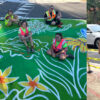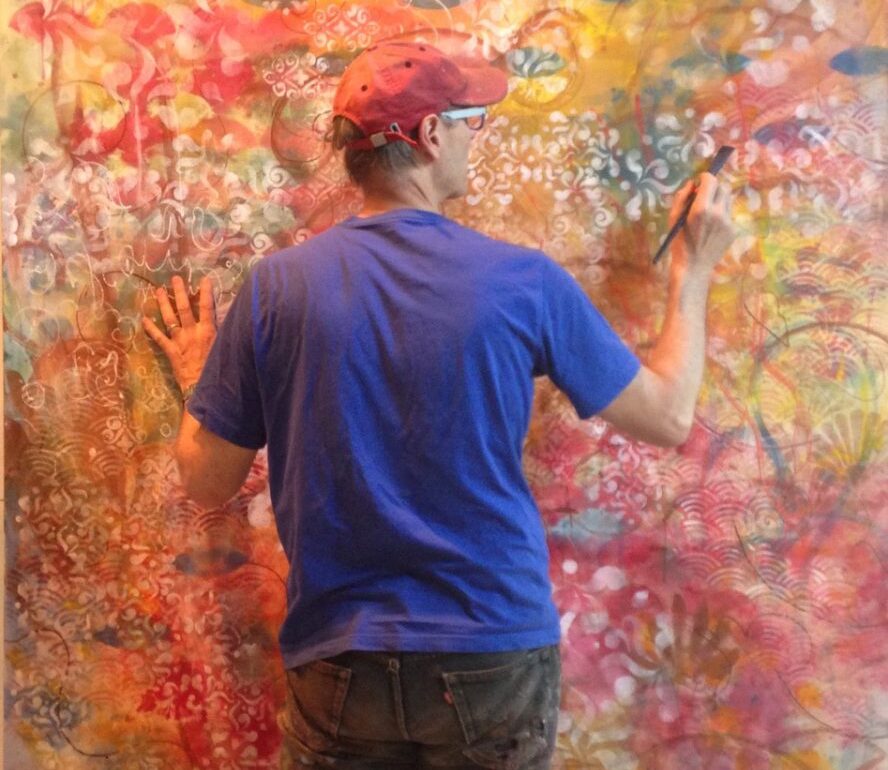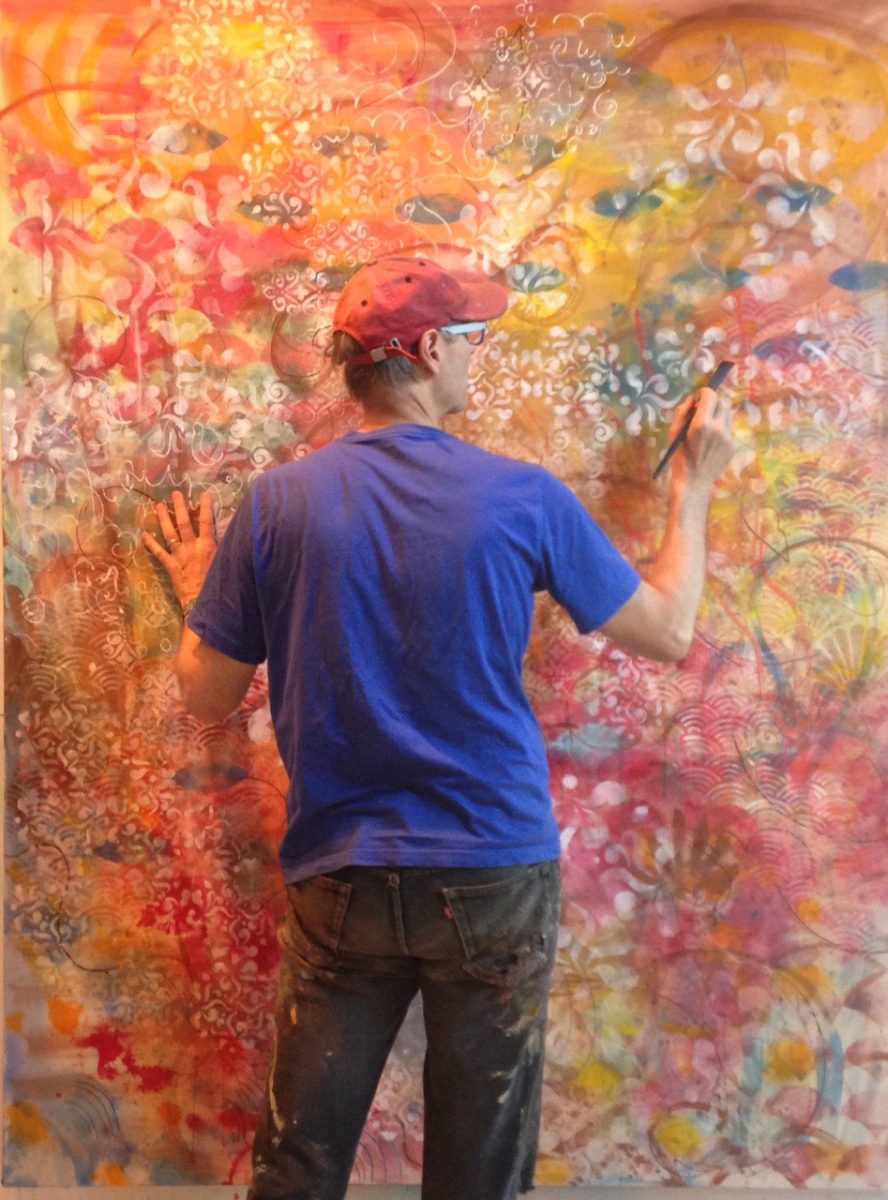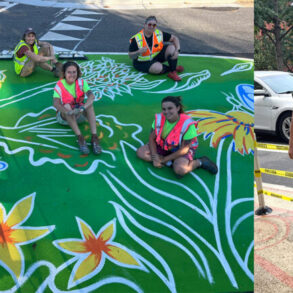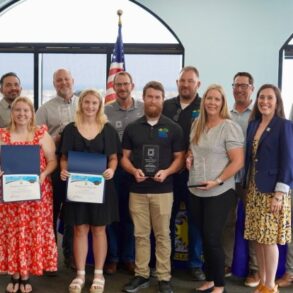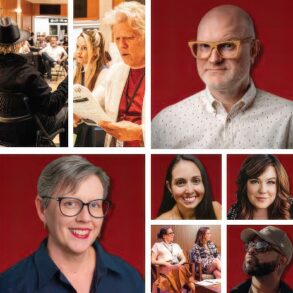When New York-based artist Ken Buhler sits down in his studio to start a new painting, he doesn’t have a plan for the piece. He doesn’t have an exact idea about what he is about to create. He has his colors and tools laid out in front of him, but his only thought is the memory of the place he wants to paint.
When Buhler begins, he puts down two colors meant to invoke an image of light or atmosphere. As he continues, he remembers more of the environment he wants to paint and things begin to manifest on his canvas. Buhler wants to create something he doesn’t expect.
“The process is what’s really important; it’s the exploration, it’s the discovery,” Buhler said. “My goal is to synchronize all these internal feelings with all those past impressions of color and light and shape that I’ve collected in the natural world.”
Buhler doesn’t create for an audience. He creates because he feels he has to.
“I make [paintings] to manifest that impulse I have to bring all these things together,” Buhler said. “To synchronize all this color and feeling. I don’t really know what I’m going to do, let alone who is going to see it.”
Several of Buhler’s works are currently featured in the Anderson Gallery’s first fall exhibit, “Beautiful Land,” alongside works by fellow New York-based artist Kim Uchiyama.
Buhler said his favorite piece in the gallery is “Her Holy Modal Majesty.” Its name is inspired by the song “His Holy Modal Majesty” by Mike Bloomfield and Al Kooper. Buhler said he believes there’s a euphoric feel to the song and said “there’s a little bit of that ecstatic energy in that painting.”
The idea for the painting struck when Buhler visited west Texas with his wife.
“There are fewer and fewer places in the world where there’s an absence of ambient city light,” Buhler said. “In west Texas, there’s the McDonald Observatory. [My wife and I] were able to go on stargazing nights, and they have these very large telescopes set up for people to observe the sky. If you look in this, you can see the rings of Saturn and all this stuff. It was fantastic.”
Buhler rarely uses actual brushes in his work. Right now, his favorite tool is a car washing sponge. He uses mops and pencils in his compositions as well.
“I don’t like to have total control because there’s an element of chance there,” Buhler said. “I like to have something between me and my brain, something in my hand that will maybe make something that I couldn’t have thought of. Different tools will advance my thinking — not obey, but advance it.”
Recently, Buhler has been experimenting with marbling, a method that involves placing colors on the top of water and transferring them onto an absorbent surface, such as paper or fabric.
“My plan is to create the marbled patterns on fabric and glue those to canvas and then paint on top of them,” Buhler said. “I’ve learned the hard way of waiting too long to try things, so I’m going to try it. It may be a flop, but I feel like I at least have to.”
Some of Buhler’s marbling work from his “Faithful Compass” series is currently on display in the Anderson Gallery.
“As with all of Buhler’s works, whether on canvas or watercolor on paper, the marbling reflects a process of receptive engagement with materials in which spaces and subjects are allowed to emerge, unfurling into fields of possibility,” Christina Kee, a New York-based artist and arts writer, wrote in the hand-out for the exhibit.
Buhler said that he truly loves what he does.
“I once told someone that I feel like I am in a spaceship that’s orbiting a planet,” Buhler said. “Let’s say that planet is the world of art that I’m trying to create. That’s my vision.”
To Buhler, he’s been orbiting the same planet his entire life, but it doesn’t always look the same.
“I’m looking at it from a different angle,” Buhler said. “I’m looking up close, I’m looking at it far away. There might be atmospheric issues some days when I don’t see anything clearly, but it’s somewhat comforting to have a kind of continuity in my vision.”
As far as life on Earth goes, Buhler said he doesn’t have many regrets. He just wants to have a legacy.
“I just want to be a good person,” Buhler said. “I want to make good paintings. I want people to remember me in a very fond way. I want them to think of my paintings in a very positive way too. I mean, I’m still trying. I still haven’t done the thing I want to be most proud of yet.”
Buhler’s art will be on display in the Anderson Gallery as a part of the “Beautiful Land” exhibit until Oct. 20. It is free for all and open Tuesday-Sunday 12 p.m. to 4 p.m. and Thursday until 8 p.m.
This post was originally published on this site be sure to check out more of their content


